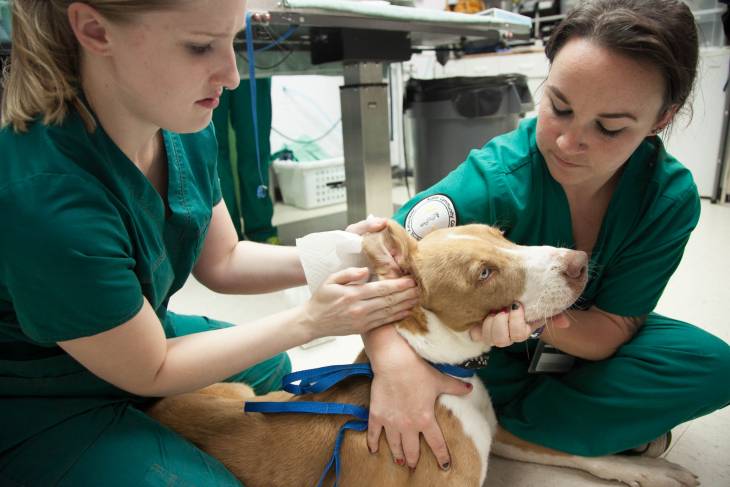Hemorrhagic Gastroenteritis in Dogs (What You Should Know!)
Your dog has looked healthy for years. Suddenly, he is stricken with diarrhea. It's not just any diarrhea, though - it's bloody, bright, and it's in a massive quantity. The bloody, runny stool is a sign of hemorrhagic gastroenteritis, and it's a condition you need to treat immediately.
Hemorrhagic Gastroenteritis at a Glance
There are few conditions that a dog can have that can cause a more panicked response than Hemorrhagic Gastroenteritis. Also known as HGE, the acute disorder is disturbing because it infamously causes dogs to produce huge amounts of bright, bloody diarrhea. Moreover, the massive discharge tends to happen rapidly and without warning, thus creating a devastating one-two punch that could rock even the savviest of dog owners to their core.
What makes HGE even more frightening is that there its precise cause is still a mystery. Popular theories regarding the condition’s origins range from a bacterial infection to severe reactions to parasites or even food. Psychological conditions such as anxiety have also been singled out as a potential cause.
HE has a tendency to effect small dogs and toy breed more than any other type of dog. Specific breeds like the French poodles, miniature schnauzers, Yorkshire terriers, and cavalier King Charles spaniels seem to be particularly susceptible to the condition. The discrepancy between the small body of these breeds and the large amount of bloody discharge arguably makes the condition all the more disturbing and heartbreaking to witness.
How Hemorrhagic Gastroenteritis is Diagnosed

Even though the bright bloody discharge seems to be a tell-tale clue of HGE, it is not the way the condition is pinpointed. Rather, the condition could be brought on in conjunction with other serious diseases that must be looked for in these situations. Some of these other diseases include gastrointestinal tumors or canine parvovirus.
When you bring your dog into to the vet to get him checked out, your vet may end up diagnosing the disease through a process of elimination. To get to this point, he or she may order up a battery of tests to look for signs of additional illness. Common tests associated with this battery include blood count tests, urinalysis, a gastrointestinal ultrasound, and x-rays.
The tell-tale sign of this condition from a testing standpoint is the packed cell volume - that is, a measurement of the proportion of red blood cells within a dog. In cases where a pooch has HE, this volume will be more than 60%, which can be anywhere between 5 and 20 percentage points higher than normal. This heightened amount, when combined with low or normal blood protein levels, is typically strong signs that HGE is present.
My Dog Has HGE - Is It Treatable?
If left untreated, HGE is a fatal condition. The condition is treatable, but to achieve success, treatment has to be aggressive and must start right as soon as possible. Don't wait to see your local vet to discuss the condition - take your pooch to an emergency vet clinic post haste.
You can expect your dog to receive intravenous fluid therapy to help stabilize any fluids that may have been lost during the onset o the condition. If your dog is also vomiting - a relatively common symptom of HGE - he may also receive anti-nausea medications to help balance his tummy.
There is a silver lining in the aftermath of all of this scary stuff. That is, if HGE is treated at its outset and in an aggressive fashion, the prognosis for recovery is good. Most dogs will need to stay in the hospital for a couple of days for further their stability, but once they are deemed stable, they can finish their recovery at home.
Don’t Panic! Keep Calm and Take Care of Your Dog
If you see your dog producing the bright, bloody diarrhea associated with HGE, it is important that you take a deep breath, remain calm, and tend to your little buddy’s needs. Remember, he may be panicked just as much as you are, and if he sees you freaking out, that may only serve to exacerbate things even more. So be strong and act swift for his sake - it may end up saving his life.

